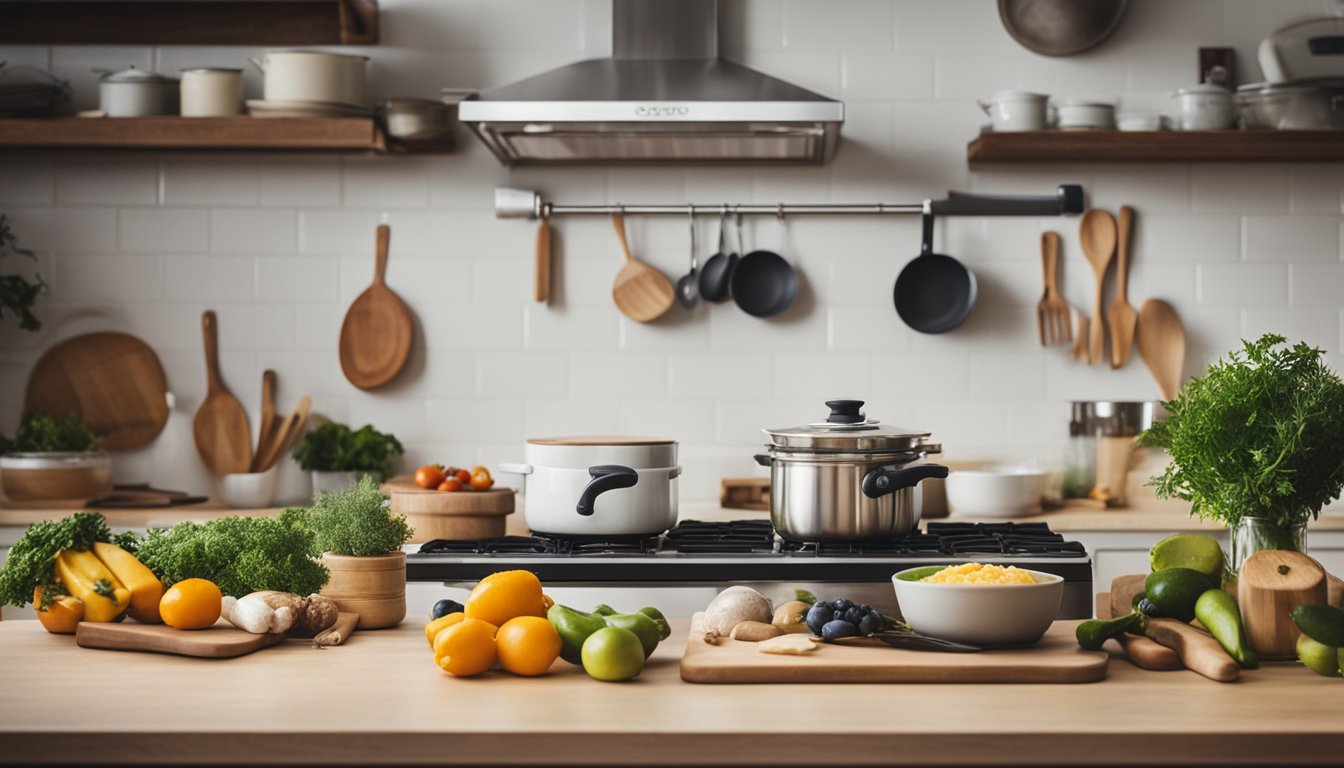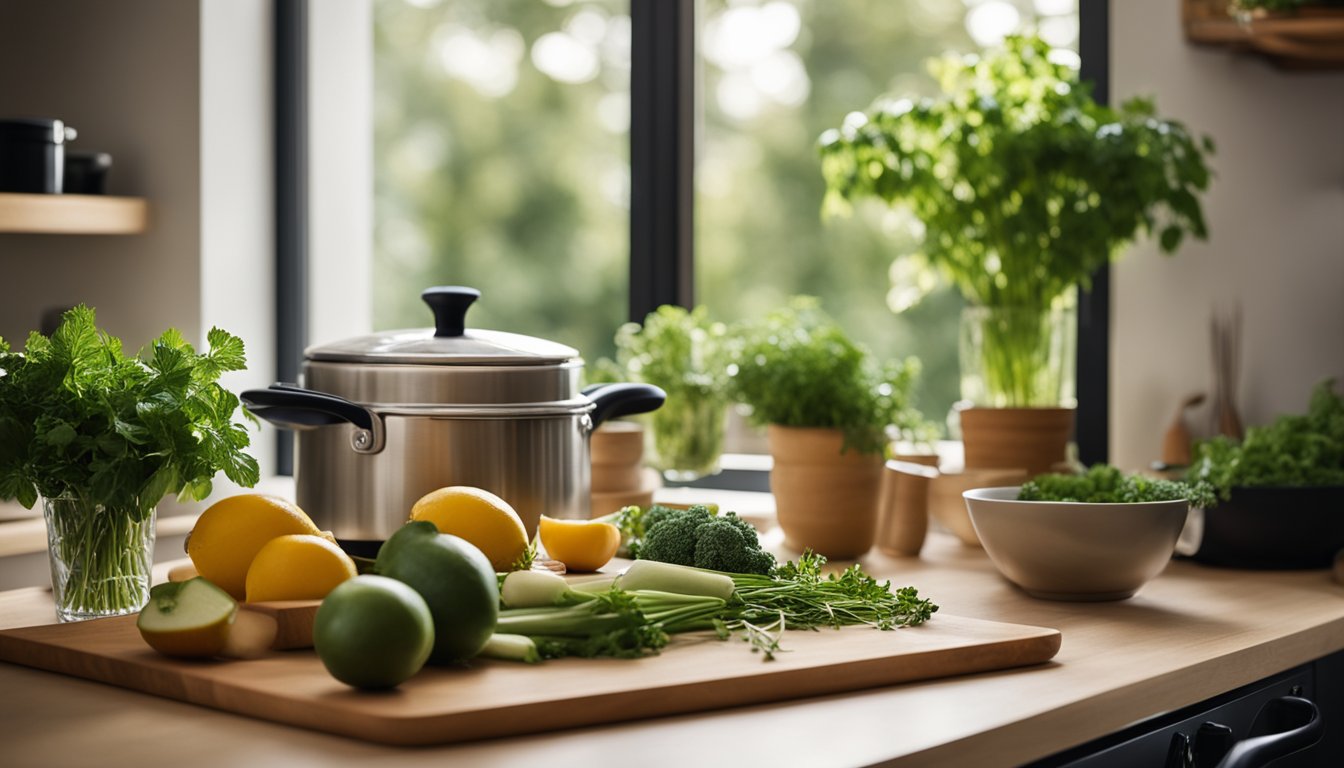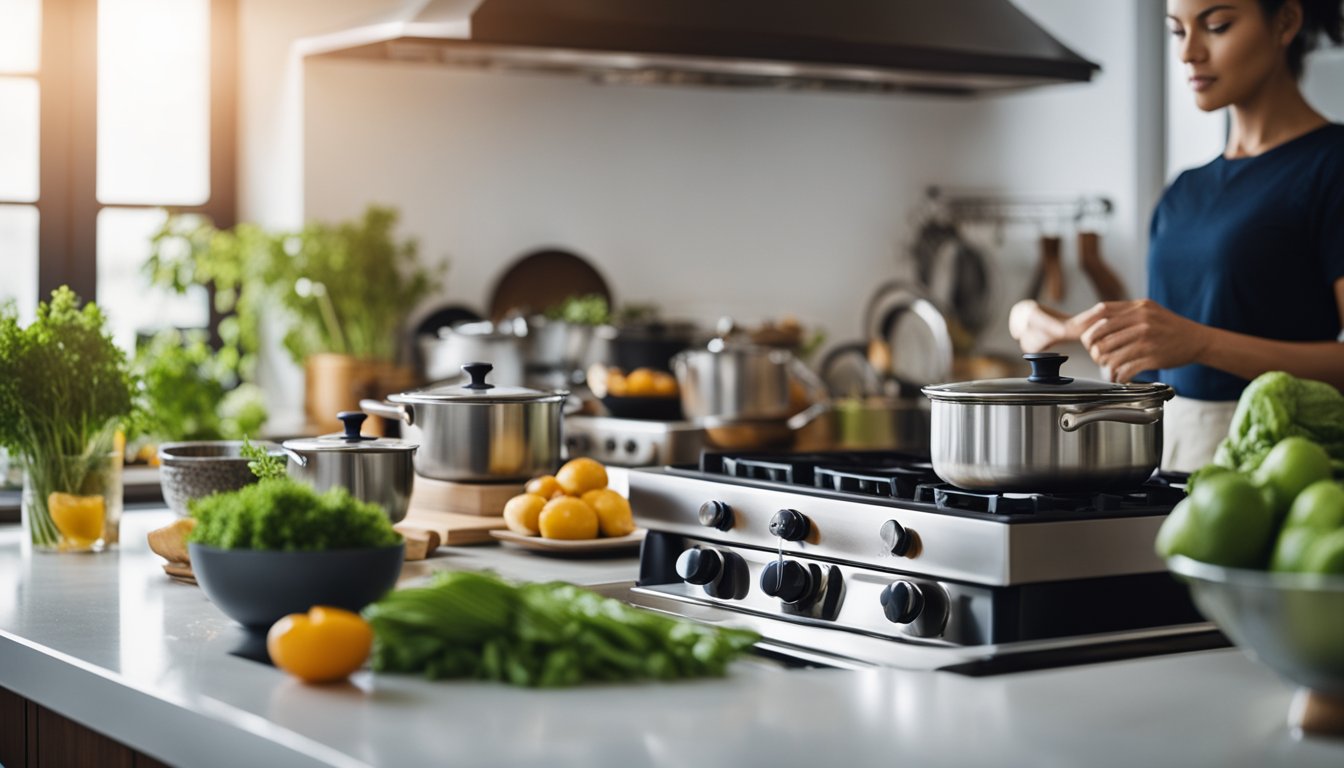Late updated: 27 Mar 2025 13:03
Written by: Ella Thompson
Exploring Mindful Cooking for Recovery and Wellbeing: A Path to Improved Health
Exploring mindful cooking can be a transformative journey for those in recovery and seeking to enhance their wellbeing. The kitchen becomes a place of healing, where we learn to engage all our senses and focus on the present moment. By being fully present, we not only create healthier meals but also foster mental clarity and emotional balance. Mindful cooking allows us to reclaim the restorative power of the kitchen and build a deeper connection with the food we prepare.

Mindfulness in cooking encourages us to slow down and appreciate each step of the process. From selecting fresh ingredients to appreciating their textures and aromas, every action becomes a meditation. This approach not only nourishes our bodies but also soothes our minds. Cooking mindfully provides an opportunity to practise gratitude and awareness, which can contribute significantly to recovery and personal growth.
As we cultivate a mindful approach to cooking, we tap into a deeper understanding of how our food choices affect our overall wellbeing. This practice can be especially beneficial during recovery, offering a means to establish healthier habits and create a supportive environment for healing. Embracing the art of mindful cooking allows us to experience the profound benefits it holds for both body and mind.
Key Takeaways
- Mindful cooking enhances recovery and wellbeing.
- We engage deeply with the cooking process.
- Awareness of food choices impacts wellbeing.
Fundamentals of Mindful Cooking
Mindful cooking can transform the act of preparing and consuming meals into an enriching experience, promoting both recovery and wellbeing. By cultivating a practice centred around awareness, gratitude, and intention, we can improve our relationship with food and our body's nutritional needs.
Concept of Mindfulness in the Kitchen
Mindfulness in the kitchen begins with being present and fully engaged in the cooking process. It involves paying close attention to each step, from selecting fresh ingredients to chopping and combining them with care.
By focusing on the textures, colours, and aromas of the ingredients, we deepen our connection to the meal. This deliberate focus helps us appreciate the sources of our food and the effort involved in bringing it to our table.
Engaging all our senses can make the act of cooking more fulfilling, allowing us to foster a sense of gratitude for the nourishment food provides.
Mindful Eating and Its Benefits
Mindful eating allows us to savour food more thoroughly by focusing on the flavours and textures during each bite. This practice encourages us to listen to our hunger cues, aiding in better portion control and reducing overeating.
Instead of eating on autopilot, we pay attention to the signals our body sends about its needs. This awareness can help us make healthier nutritional choices, as we become more attuned to what truly satisfies us.
By slowing down the meal process, we enhance our eating experience, promoting digestion and the enjoyment of food while reducing stress.
The Impact of Awareness on Eating Habits
Awareness in eating habits can transform how we view and interact with food. This conscious approach means planning our meals with intention, recognising the role each ingredient plays in our nutrition.
By being mindful about our choices, we can cultivate healthier eating habits that support our physical and mental wellbeing. This awareness helps us distinguish between physical hunger and emotional cravings, allowing us to address eating urges appropriately.
As we integrate this understanding into daily practices, we promote sustained wellbeing through the ongoing development of balanced, nutritious meals that cater to our body's needs.
Applying Mindful Cooking to Recovery

Mindful cooking in recovery emphasises healing through intentional food choices, addressing disordered eating patterns, and structured meal planning to support health recovery. It also considers how mindful practices can accommodate specific health conditions.
Healing through Mindful Food Choices
Focusing on the nutritional quality of our meals can significantly impact our recovery process. By incorporating a variety of foods rich in proteins, healthy fats, and essential nutrients, we support our body's healing journey. Choosing whole foods over processed options allows us to optimise balanced nutrition. Mindful eating encourages us to embrace the joy of eating by appreciating each bite. This appreciation reduces stress levels, fostering an overall sense of well-being, which is crucial during recovery.
Addressing Disordered Eating with Mindfulness
Disordered eating, including binge eating, can be effectively managed through mindfulness. We can incorporate guided meditation or breathing exercises before meals to help regulate emotions and reduce stress. By being present, we become more attuned to hunger and fullness cues, promoting healthier eating habits. Mindfulness also helps shift our focus towards the pleasure of eating without guilt, creating a positive relationship with food.
Structured Meal Planning for Health Recovery
Structured meal planning plays a vital role in supporting our health recovery. Creating a balanced diet tailored to our specific needs involves planning meals rich in nutrients and proportionate in calories. By establishing a regular eating schedule, we avoid erratic eating patterns, which can exacerbate health issues. This structure allows us to plan and prepare meals with intention, which in turn promotes healing.
Mindful Cooking for Specific Health Conditions
People recovering from health conditions such as diabetes or cancer can benefit from mindful cooking. Tailoring meals to accommodate these conditions involves choosing ingredients that manage symptoms effectively. For diabetes, focusing on low glycaemic foods helps maintain blood sugar levels. Meanwhile, cancer patients might prioritise nutrient-dense ingredients to support energy levels.
By addressing the unique needs associated with each condition, we can better support overall recovery and well-being.
Frequently Asked Questions

Exploring the intertwining of mindful cooking and recovery unfolds various dimensions. It can transform culinary practices into avenues for mindfulness, emotional healing, and enhanced well-being, all while offering therapeutic benefits, fostering community support, and building resilience.
In what ways can culinary practices enhance mindfulness during recovery?
Culinary practices offer a hands-on approach to mindfulness. By focusing on each step of food preparation, such as chopping or stirring, we engage fully with the present moment. This concentrated attention helps quiet the mind, reduce stress, and cultivate a sense of peace, essential for recovery.
What impacts does home cooking have on individual well-being?
Home cooking lets us take control of our nutrition, an important factor for both physical and mental well-being. When we cook at home, we're more likely to use fresh, wholesome ingredients that support our overall health. Preparing meals ourselves can increase our awareness of what we consume.
Could engaging in cooking be considered therapeutic, and if so, how?
Yes, engaging in cooking can be highly therapeutic. The act of cooking requires focus and creativity, offering an emotional outlet much like other artistic activities. Many find a sense of achievement and satisfaction when they complete a dish, which can boost self-esteem and provide a much-needed distraction from daily pressures.
What advantages does the kitchen environment offer for mental health and stress reduction?
The kitchen environment encourages routine and structured activities that can be calming. The rhythmic aspects of cooking tasks like kneading dough or whisking can be meditative. Additionally, the sensory stimulation in the kitchen, including smells, sounds, and textures, can be grounding, helping to reduce anxiety and improve mood.
How can the process of cooking promote emotional healing and psychological resilience?
Cooking can facilitate emotional healing by allowing us to express ourselves through the dishes we create. The skills learned and accomplishments achieved in the kitchen can contribute to a sense of competence and control, essential components in building psychological resilience during recovery periods.
What role does preparing and sharing meals play in fostering community and support in recovery?
Preparing and sharing meals fosters connection and builds support networks vital for recovery. It creates opportunities for us to interact with loved ones and share experiences. Through these shared meals, we strengthen these relationships, reinforcing a sense of belonging and mutual support crucial for successful recovery journeys.
